Mushroom Hunting in Corolla, NC- Cortinarius Semisanguineus (Surprise Webcap), Russula Emetica (The Sickener), Fomes Fomentarius (Hoof Fungus)
During the first week of March I traveled to the Outer Banks islands of coastal North Carolina and hiked a few of the trails in the area. This first mushroom I found while visiting the Currituck Banks Reserve Estuary for hiking and wildlife viewing.
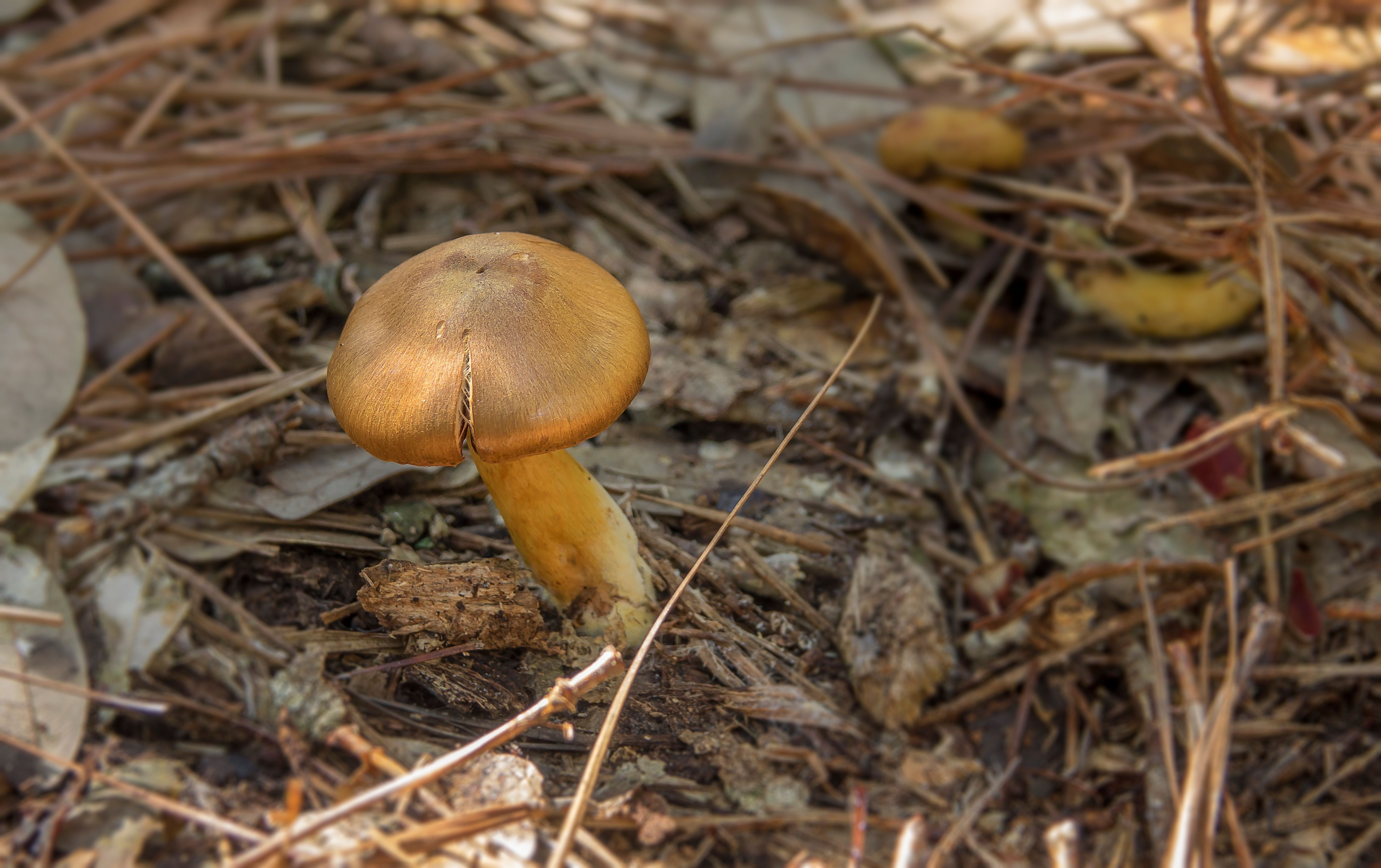%20Mushroomtop01.jpg)
The Cortinarius Semisanguineus, commonly known as the Surprise Webcap, is a medium-sized mushroom with a pale brown to ochre cap. The "surprise" of this mushroom is it's bright blood-red gills beneath it's cap.
%20MushroomGills01.jpg)
It belongs to the genus Cortinarius, a group collectively known as webcaps, is found growing in conifer plantations, and in the past it has been called the red-gilled webcap. I found this little guy, among others, beneath a mixture of Eastern Red Cedar trees (Juniperus Virginiana), Longleaf Pine (Pinus Palustris), and arguably the most interesting tree in the area- the Live Oak (Quercus Virginiana). (Below)
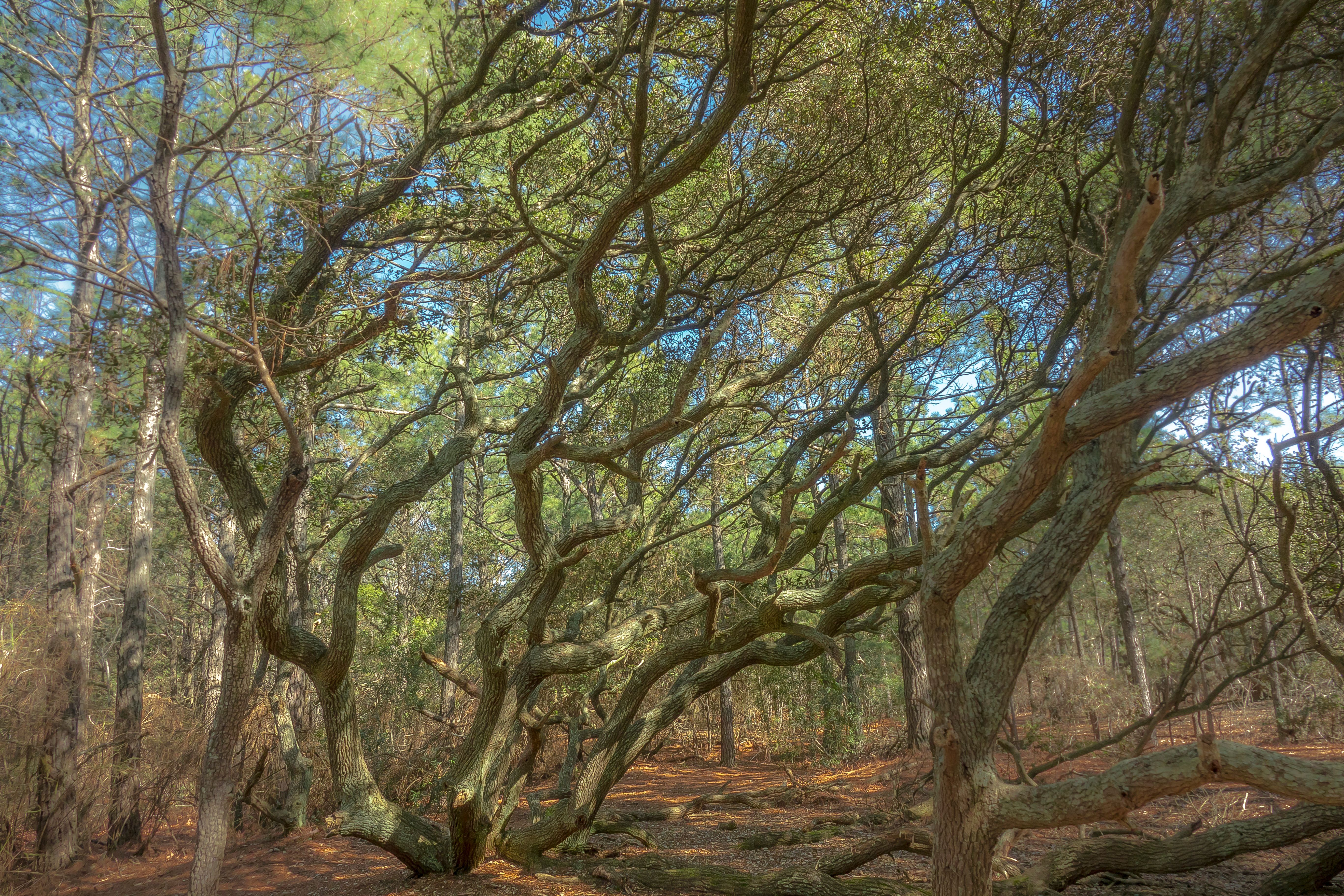
The mushroom typically appears in conifer, or mixed conifer, and birch woods in autumn, is occasional in Britain, Europe, Scandinavia, and parts of North America, and has a mycorrhizal relationship with birch trees (Betula), among other coniferous softwood trees. It is not recommended as edible, as it may contain similar poisonous compounds to those found in deadly Cortinarius, such as C. orellanus and its close relatives, but can be used as a dye for textile yarns.
This next mushroom I found further down the primitive path, half submerged beneath pine needles and half eaten. The Russula Emetica is commonly known as the sickener, emetic russula, or vomiting russula, is a basidiomycete mushroom, and the type species of the genus Russula.
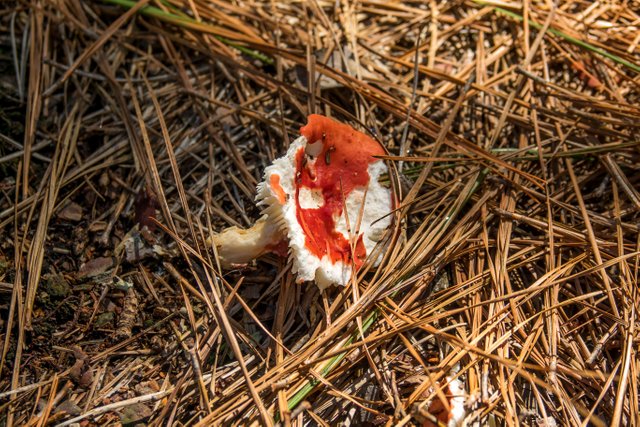
It's common names refer to the gastrointestinal distress they cause when consumed raw, but can be removed by parboiling or pickling, although it's generally not recommended for consumption. The flesh is extremely peppery, and has been widely eaten in Russia and eastern European countries. There are many similar Russula species that have a red cap with white stem and gills, some of which can be reliably distinguished from R. emetica only by microscopic characteristics.
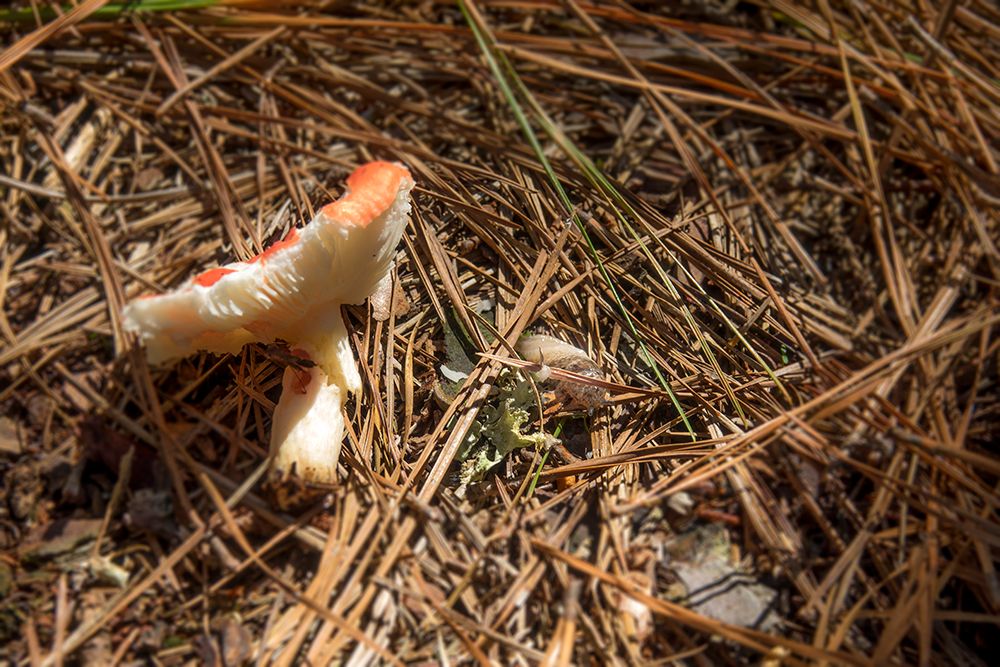
After stirring around the pine needles it lied upon, I found the mushroom's assailant that was eating it- a slug. R. emetica is mycorrhizal, and forms mutually beneficial partnerships with roots of trees and certain herbaceous plants. Preferred host plants are conifers, especially pines. Fruit bodies grow singly, scattered, or in groups in sphagnum moss near bogs, and in coniferous and mixed forests. The fungus occasionally fruits on humus or on very rotten wood.[18] The mushroom is known from North Africa, Asia, Europe, and North America, and can be locally very common. There is some doubt over the extent of its range in North America, as some sightings refer to the related R. silvicola.
The last mushroom I found along the boardwalk section of the path is what I believe to be the Fomes Fomentarius, commonly known as the tinder fungus, false tinder fungus, hoof fungus, tinder conk, tinder polypore or ice man fungus. 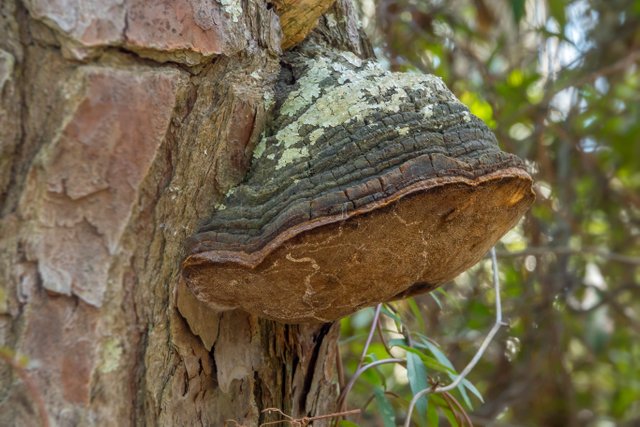
Its is a stem decay plant pathogen. The species' mycelium penetrates the wood of trees through damaged bark or broken branches, causing rot in the host. The fruit bodies are perennial, surviving for up to thirty years. The strongest growth period is between early summer and autumn. The yearly growth always occurs on the bottom of the fungus, meaning that the lowest layer is the youngest. It has traditionally seen use as the main ingredient of amadou, a material used primarily as tinder, but also used to make clothing and other items, like Paul Stamets hat :P.

I really enjoyed the Currituck Bank Reserve area in Corolla, the hiking area could take you about 1-2 hours if you check out both trails, and you also might have the opportunity of seeing wild horses in that area. If you plan on making an entire day of the area, the beach is nearby so you can enjoy some of the marine life, as well as visit the Currituck Light House.
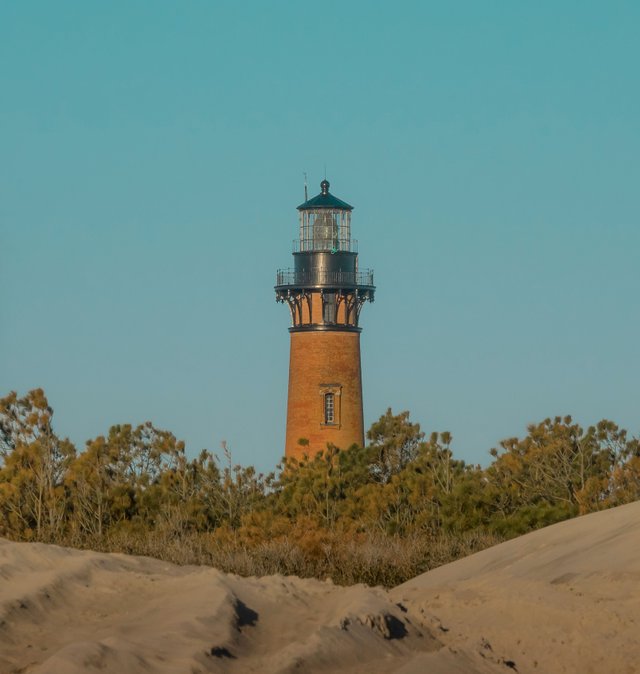
https://www.youtube.com/paulbegley34
https://www.youtube.com/paulbegley34
Congratulations @nrwave! You received a personal award!
Click here to view your Board
Congratulations @nrwave! You received a personal award!
You can view your badges on your Steem Board and compare to others on the Steem Ranking
Vote for @Steemitboard as a witness to get one more award and increased upvotes!